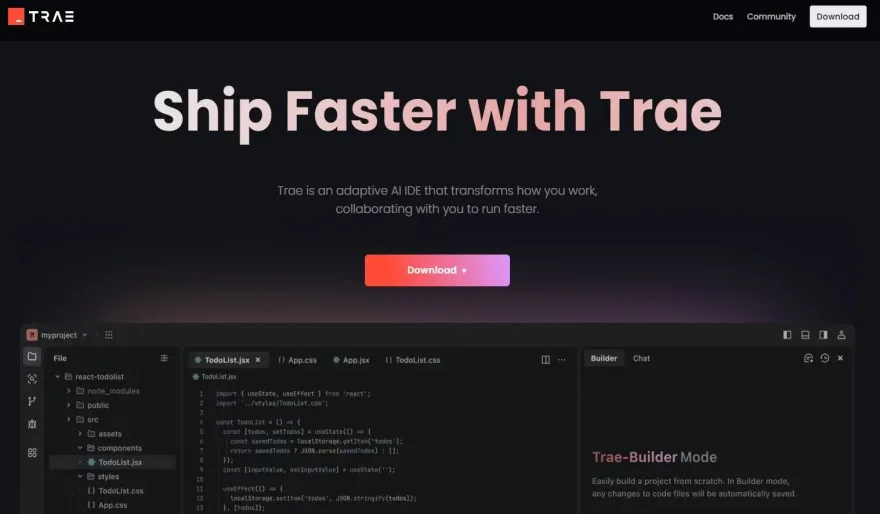Stay Ahead of the Curve
Latest AI news, expert analysis, bold opinions, and key trends — delivered to your inbox.
Trae AI: ByteDance’s Entry into AI-Powered Developer Tools Sparks Mixed Reactions
5 min read ByteDance's Trae AI is a new AI-powered IDE built on VS Code, offering AI-driven coding, debugging, and refactoring—and it's free for now. While praised for seamless integration, concerns over privacy & ByteDance's data practices linger. Future pricing & regulation remain uncertain. Thoughts? February 17, 2025 13:06
ByteDance has introduced Trae AI, an AI-integrated development environment (IDE) built on top of Visual Studio Code (VS Code). The tool aims to enhance developer productivity by integrating AI-driven features beyond traditional code completion, including AI-assisted debugging, code generation, refactoring, and test case suggestions. As AI-powered IDEs become more prevalent, Trae AI enters the landscape with both opportunities and concerns.
Key Features and Functionality
Trae AI is designed to help developers build applications more efficiently, in some cases reducing the need for manual coding. The IDE integrates AI-enhanced automation, allowing for faster development cycles. Built as a fork of VS Code, it retains compatibility with VS Code’s ecosystem of extensions while incorporating additional AI-powered features. Users have reported a smooth setup and a refined user experience, making it a competitive option among AI-assisted development tools.
Availability and Strategic Implications
Currently, Trae AI is available for free, distributed by ByteDance’s Singapore-based subsidiary. The move aligns with ByteDance’s broader expansion beyond social media, at a time when legislative scrutiny on TikTok remains high. While the company has not specified if Trae AI will remain free in the long term, its current accessibility makes it an attractive choice for developers interested in AI-assisted coding.
Privacy, Security, and Regulatory Considerations
As with many AI-powered tools, privacy and security are central concerns. Some developers and industry observers have raised questions about data handling due to ByteDance’s ownership and past scrutiny over data practices. While there are no confirmed reports of privacy issues with Trae AI, the lack of explicit transparency on how data is processed remains a topic of discussion. Additionally, Trae AI does not currently have web access for retrieving external documentation, which may be a limitation for developers who rely on online resources.
User Reception and Industry Reactions
The response to Trae AI has been broadly divided into several perspectives:
- Tech Community Reception: Many developers appreciate the functionality and ease of integration with existing tools. Its AI-driven capabilities, including access to models like Claude-3.5-Sonnet, have been highlighted as valuable features. However, others emphasize the importance of transparency in how AI models are trained and how data is used.
- Privacy and Security Concerns: Analysts and policymakers remain cautious about potential data risks, given ByteDance’s global presence and ongoing geopolitical tensions. While there is no direct evidence of data misuse, there is heightened sensitivity toward tools developed by companies with ties to China.
- Regulatory Discussions: There is an increasing call for clear AI governance policies to ensure that AI-powered development tools—regardless of origin—comply with data protection laws and security standards. Some voices advocate for more Western-developed AI alternatives, while others stress the importance of maintaining an open and competitive tech ecosystem.
Balancing Innovation with Risk
As AI tools become more embedded in development environments, Trae AI represents both an opportunity and a challenge. Its advanced features and seamless integration offer clear benefits to developers, yet questions about data privacy and long-term viability remain.
For now, the tool's future direction—whether it will remain free, how it will handle privacy concerns, and whether it will face regulatory challenges—will likely determine its adoption in the broader developer community. As discussions around AI in software development evolve, transparency, security, and functionality will be key factors shaping the perception of Trae AI and similar innovations in the industry.



















 AI Agents
AI Agents